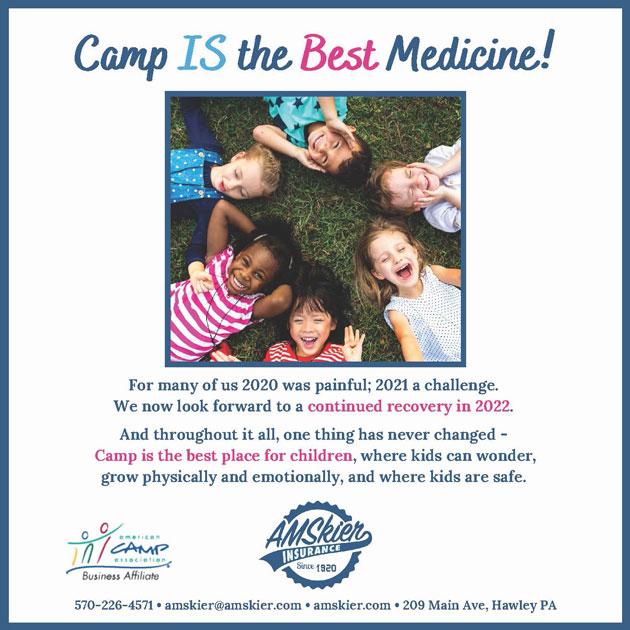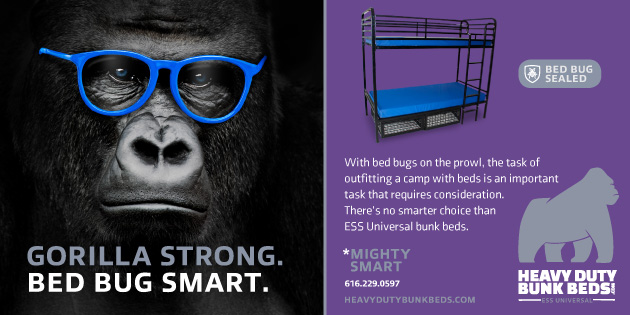An Interview with Candace Doby
Candace Doby is an Atlanta-based speaker, author, and courage coach who works with universities and organizations to help emerging leaders activate their personal courage to perform to their potential in school, work, and life. Doby’s book, A Cool Girl’s Guide to Courage: Fierce Quotes and Journal Prompts for Facing Your Fears and Finding Your Confidence, is due out this spring.
First off, please tell us a little bit about yourself and what got you interested in studying courage.
I am classically trained in marketing. I went to school for marketing, and I had a 16-year career. But while I was skilled in creating marketing strategies, I learned that what I felt I was best utilizing my skills and talents for was actually helping my team — helping them to conjure their courage to navigate the professional space. They could defend and speak up for their ideas when there was opposition around them. They could give and receive feedback, which is one of the hardest things to do in a professional space. And they could be themselves. When I took a look at my own life and saw all the moves I’d made that required courage, it emerged as a theme. I just realized that courage is my jam, and this is what I want to do — I want to help people conjure courage so they can perform to their potential.
What is your personal working definition of courage?
I describe courage all the time when I’m speaking, and even when I’m grounding myself, as a choice to face a risk for a worthy purpose. Courage is a personal choice. You decide to face some kind of challenge or threat for a purpose you deem worthy. That’s really the motivation and the anchor behind why you expose yourself to the risk.
And I’ll be honest with you, a lot of people love having personal choice and free will, but they don’t necessarily like exercising it, because they don’t like being accountable or responsible for the outcome if the outcome is less than ideal. That’s why personal choice is really important in that definition.
Why do you say that risk is a central part of courage?
Without risk, you don’t need courage. That’s critical to understand. Courage is all about making the choice to face the risk. You have to employ your internal resources, your confidence, your competence, to be able to face the risk. You can’t really demonstrate courage without there being a risk at the center.
What mindsets should a person remember when trying to act courageously?
There are all kinds of mindsets that will help a person act courageously, but I really like these three:
Compare yourself only to former versions of yourself. This is a critical mental habit to have, because what can often stop us from acting courageously is we’re looking around at what other people are doing. We’re even personalizing other people’s fears. There’s actually research that says when you make comparisons to other people, especially when it’s a downward comparison, you just feel worse about yourself and more paralyzed. But if you can get in the habit of only comparing yourself to former versions of you, then you can empower yourself. You can give yourself a dose of confidence in seeing where you’ve come from. If you look at yourself two months prior or a year prior — what you were challenged with, what you were doing, and where you are now — it’ll give you the personal agency to step outside your comfort zone.
Don’t focus so much on trying not to lose that you make it impossible to win. When we think about risk, our brains can immediately go to everything that will go wrong, and then we tend to enter a mode of protection. When we are in a protective state, it is actually biologically impossible to also be in a courageous state. This is the opposite of growth mode. You have to stay open to the possibility of winning.
Stop following rules that don’t exist. This is another critical mental habit. Whenever you hit a point where you’re struggling to do something but you’re stuck, ask yourself, “What rule am I following that really doesn’t exist?” When we’re trying to act courageously, we will often think about a way in which we have to do something. We may have seen someone else do something, and we think we have to mimic that approach. But it might not be right for us, so we end up struggling and staying stagnant. There is no rule that you have to do something like someone else did. Try a different angle. That’s much easier to do when you can lift the rules and restrictions you’ve put on yourself.
How can our emotions make us miscalculate risks?
When it comes to risk-taking, emotions can get in the way. They can cloud our judgment. You need to be able to think rationally. When we are led by our emotion, we can exaggerate data points within a situation. We can exaggerate the situation itself. Or we might minimize things in the situation and not look at information that is available to us clearly. When we’re taking risks, being emotional is part of the human experience, so I’m not saying we should be emotionless, but when it comes to stepping outside of our comfort zones, it’s really important to manage our emotions.
Being emotionally charged can really constrict our choices because we’re only able to see what our emotions allow us to see. That can often be a very myopic view of how to approach a situation. Another thing it can do is lead us to place more emphasis than necessary on the past or the present. Our emotions can make us look back on a situation from our past, and we’ll apply that one example, that one result, to what we think might happen in the present with whatever we’re trying to do.
You’ve said, “Failure is just another word for ‘try again,’” and that perfectionism can stifle courage. What advice would you give camp professionals dealing with campers who are afraid to fail?
There’s a lot of work that we can do around reframing failure, which is part of what that quote is about. Truly, failure is really just an opportunity for us to learn. Every time we do something and it doesn’t end up like we anticipated, there’s more to the story than that. There’s information in that story. There’s an opportunity for us to try out our skills, to understand what part of our skill set needs more development and what part we can rely on. Failure is actually a part of the process to winning. And that’s how we need to reframe it. It’s an opportunity to try again so you can get closer to the intended outcome.
People also really personalize failure, and I think that’s something perfectionists do. We can sometimes confuse failing with we ourselves being a failure. So I think camp professionals can help to separate those two things, and ask questions to understand if that’s what a camper is doing.
I don’t think anyone who has ever succeeded big at something has not had a series of failures that came before. That’s because it’s part of the process. I find it very hard to believe that people who win big do it in the first attempt. A lot of things go wrong before they get there.
To quote you again, you’ve said, “Something is wrong when being stuck in traffic bothers you more than being stuck in life.” That’s a profound statement. How do you motivate yourself to get unstuck?
We often get really riled up when we’re stuck in traffic. I’m in Atlanta, and there’s a ton of traffic — usually because we all have somewhere to go, and we’re trying to get there quickly. We have a set destination. But when we have goals in life, we don’t tend to treat them with the same importance. That’s why you have people who stay stuck in jobs for years, because they don’t treat getting to their destination — using their purpose and power — in a way that is urgent. So what if we did apply the same urgency we have when we’re stuck in traffic to being stuck in life?
We talk often about how camp is a great place for kids to get out of their comfort zones, because it seems like kids today have an ever-growing unease with feeling uncomfortable. You have expressed that being uncomfortable is an art. What do you mean by that?
It is a skill that you have to learn. We are biologically wired to be comfortable. If we fall into our comfort zone, it’s because we’re wired to do so. Our brains want to keep us safe, and that’s just part of our innate survival mechanism. So being uncomfortable takes effort. It is an ART form, which is an acronym that I came up with for working through that process. The A stands for acknowledging the discomfort. I think this is probably the easiest part of that process; we can acknowledge it pretty quickly. We feel all the physiological feels of being uncomfortable. But often what happens is we won’t recognize it long enough. As soon as we feel it, we want to flee. It’s really recognizing the discomfort and letting it be there.
The R in ART stands for residing in the discomfort. There’s no way you can learn how to be uncomfortable if every time you have an opportunity to be uncomfortable you leave as quickly as you can. Allow yourself to feel the feeling and don’t judge it. When we judge it as negative, then we want to get away from it even quicker. At some point you want discomfort to feel familiar. Because the more familiar it gets, the better the relationship you have with it.
The T of ART is to tame it. Once you experience the discomfort enough to become familiar with it, you can start to tame it, literally. You can start to reduce the impact that it has on you — it becomes like your annoying cousin instead of the boogie monster. You know how to deal with it.
Why do you think people get comfortable with putting themselves in a box?
Again, this goes to how our brains work. They are really wired to make shortcuts. It’s the way we save energy, so our brains don’t have to use a ton trying to figure things out. So we take shortcuts; we put people and things into boxes. And I think it’s naturally easier for people to want to label themselves or accept the labels that society or people within society — like their employers, their kids, or whomever — want to put on them. It’s easy, too, to define yourself with labels that society already has: mother, sister, employee. But whether you’re a youth, an adult, male, female, nonbinary — we are dynamic people, and we’re not one-dimensional. I think it’s really important for people to select labels that are inspiring to them.
You’ve asked, “What price is fear paying you to sell out on yourself?” What costs come to your mind; what are the repercussions of letting fear get the best of us?
It’s hard to explore new things and new places, but when you allow fear to dominate you and your thought processes, then you’re really trading in your potential for comfort and safety. Listen, fear is going to win sometimes. There may be real situations where our lives are in danger, and fear should win. At some basic biological level, it’s about self-preservation. But when there is no real threat, and you let fear win, you are selling out on your promise and your power — you are selling out on yourself.
What can camps do to prioritize the development of courage in young leaders?
Courage is a concept that we just don’t talk about that often. We talk about confidence, which is critical to courage, but we don’t really talk about what courage is and why it’s important — and how it can help us to manage our fears and step outside of our comfort zones. So one first step, which is basic and low-hanging fruit, is just to talk about it more.
The other thing is courage is a big construct. A lot goes into it, so breaking down the components and talking about them is also helpful. Confidence is one, and I know that camps do a lot to build confidence in youth. Another part is competence and skill, which I know camp does as well. I think there could probably be a little more targeted effort to help campers be uncomfortable, and to believe in their ability to rebound. This really comes into play when there is fear of failure or rejection.
Psychologist Abraham Maslow said, “The people who reach the fullness of their potential make risk-taking routine.” That’s what we can help campers do — intentionally take risks often.
Any other advice you would give camp professionals seeking to better equip themselves or others to be courageous?
Again, if we go back to the definition of courage — making a choice to face a risk for a worthy purpose — then I think it is critical to make it a point to take small risks every day. Because when we do that, we’re becoming more familiar with discomfort. We’re flexing our skills and our abilities. We’re giving ourselves the opportunity to figure it out. And taking risks gives us the ability to process our emotions. How did I really feel when I took that risk? And to process the outcomes. What happened? Is there anything I can learn from this that I can apply to the next risk I take?
Dare yourself to step out of your comfort zone. That’s how you can engage in the courage process more. That’s what’s going to get you to a place where you can actually act more courageously.
This interview was conducted by Marcia Ellet, editor in chief of Camping Magazine.




